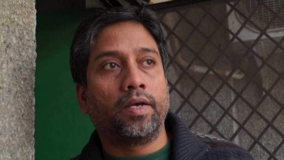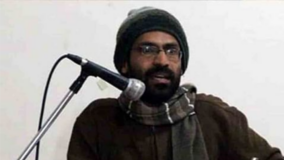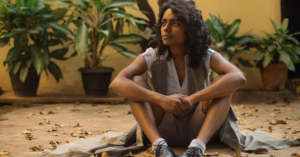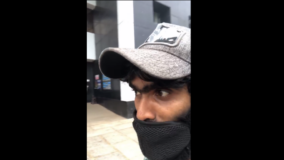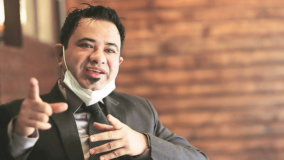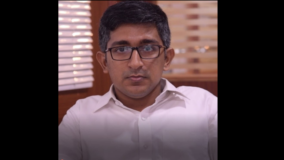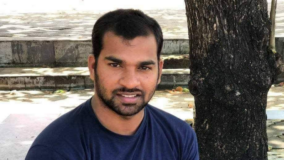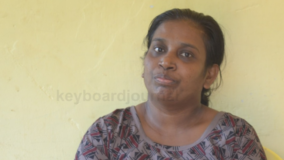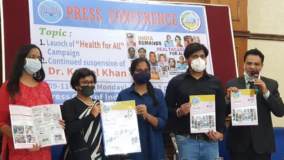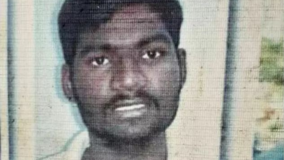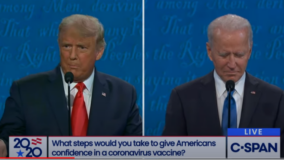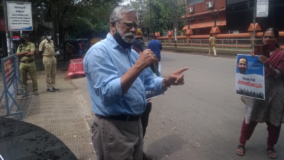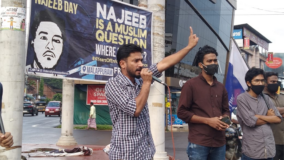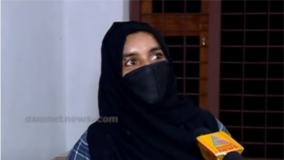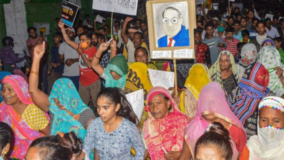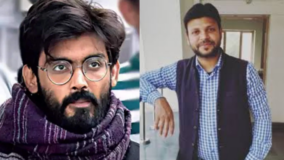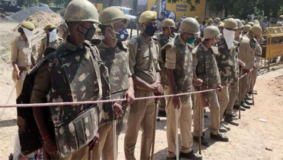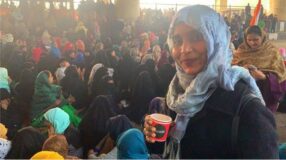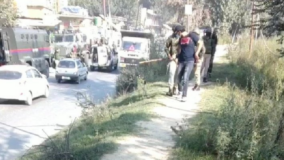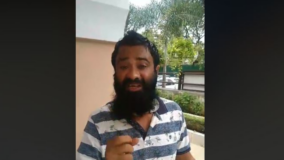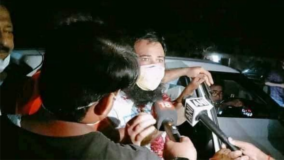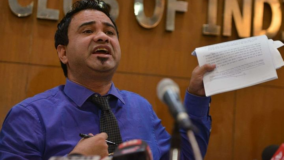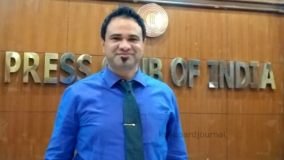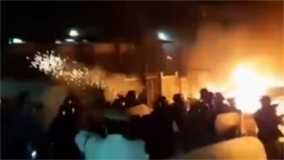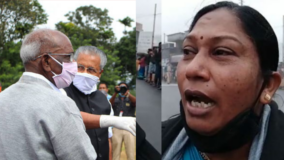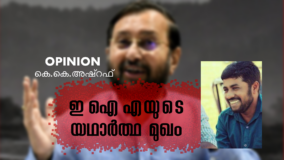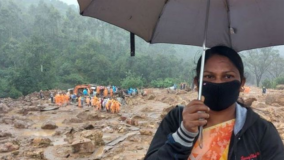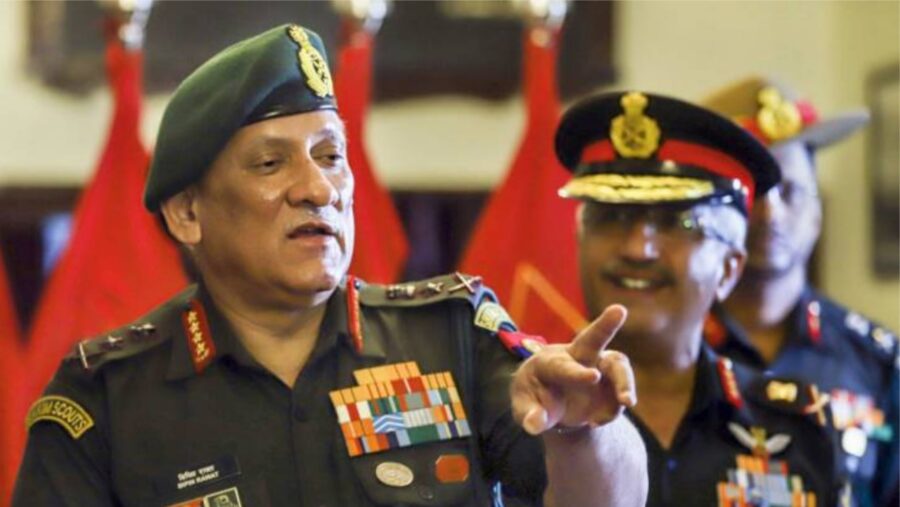
Read the full text of what Indian Combined Defense General Bipin Rawat said on Kashmir
Indian Combined Defense Services general Bipin Rawat said that Kashmiri children should be isolated and moved to deradicalization camps. He also said that India has such camps. Bipin Rawat said that to counter terrorism, the first step is to isolate the terrorists if to follow American model of combating terrorism. Kashmir is on its 167 days of information and communication blockade and armed torture.
General Rawat said,
“Girls and boys as youngest as twelve are now being radicalized. These people still can be isolated from radicalization in a gradual way but there are people who have completely been radicalized, these people have to be completely taken out separately, possibly taken into some deradicalization camps, we have got deradicalization camps going on in our country, let me tell you Pakistan is also doing the same.”
Here is the full text of what he said at Raisina Dialogue 2020 on January 15,
”A lot of bloodshed on the battlefield, a man on man combat, combats in the air, combat in the seas. We might think that there is a happy ending to all that, that everything will come to an end, let us not forget that this banquet can well be attacked by the swarm of bees in the form of terrorists. This war is not ending. War on terror is something we have to continue, without we can’t live with, until we understand and gets to the roots of terrorism. So to say that the desert has been served and has come to an end but don’t forget even at the end of that there is lot of cleaning to be done and the table has to be cleaned, the dishes have to be washed and lot of thing to be accounted for the damages. Therefore what is the future of terrorism? What is the final end state we can arrive at? We can bring an end to terrorism that can only happen the way the American started after 9/11, let us go on a spree on the global war on terror, let the nation join together and fight terrorism together. Well, to do that what you have to do? You have to isolate terrorists. Anybody who is sponsoring terrorism has to be taken to task, you can’t have partners ho are partnering you in the global war on terror and yet sponsoring proxies and terror.
Interviewer: You referred Pakistan?
I refer to any country which is sponsoring terror.
The problem with this is you have to go with an international messaging that has to go to them, hard action being taken and I feel one of the measures that has been adopted is blacklisting by the FATF (Financial Action Task Force), is one good measure. Diplomatic isolation you have to do. You have to bring about acceptability in the nation that yes, they are sponsors of terrorism. Denial of terrorism to say that they are not denying it they themselves are victim of terrorism can’t continue on and on to get the bull by this horns and take them to task.
So I take it as you are a supporter of peace deals?
Yes, I do agree that you have to come to a peace deal with everybody. You have to go for a negotiated peace. But in that the Taliban or whichever organization is contemplating terror, have to give up that weapon of terror. They have to come to the main table, they have to come to the political mainstream, and then if they want to rule the country then rule the country to the will of the people.
Haven’t we seen them doing it before?
Yes they did but they got the power of gun behind them.
Do you think they have the power of the gun this time?
As of now it is difficult to say but I would say yes.
So do you think Pakistan will continue to support front back the Taliban if they were to return?
The answer is yes.
What are the implications with the region?
Implication is that for sometime you may be seeing a semblance of peace in Afghanistan but finally it may be things back to normal. You have to basically change the idea of people who are writing in this area, the ideology of Taliban and only then you will find lasting peace in the region.
Does it make you angry the American negotiation with the Taliban?
Not angry, you finally need to come into the negotiation. I think when you come into the negotiation you must ensure lasting peace. It shouldn’t be just a temporary measure to find an exit. Today he Afghan national defense force is emerging. They need support. They need technological support, but let me tell you they are doing a good job. We need to give them the credit but they need support for some more time.
I’m Divya Razdan, I am a researcher and journalist. I work on terrorism and radicalization in india. I have question for first CDS of India, congratulations sir. My question is, sir radicalization can’t be eliminated because it is a failed case. I couldn’t find a single case, where we saw that deradicalization got successful. What are your views on radicalization and de radicalization? If de radicalization is not successful, so how can we eliminate terrorism in the country?
I don’t think we should work it at that way, anything that has started can be put to an end. To say radicalization can’t be countered, I think radicalization can be countered. You have to start looking at where the radicalization is happening. Who are the people radicalizing these people? From schools, universities, from religious places and sites and then there are group of people who are spreading these. You have to get the nerve of the whole thing that who is radicalizing people. You can start isolating these people gradually. Then start a counter radicalization program by identifying people who have been radicalized to what degree, you got to segregate them in degrees. And then look at those who are completely radicalized first target them, then start also looking at the future. What we are seeing in Kashmir, we saw radicalization happening. Today we are seeing radicalization being undertaken among the young people. Girls and boys as youngest as twelve are now being radicalized. These people still can be isolated from radicalization in a gradual way but there are people who have completely been radicalized, these people have to be completely taken out separately, possibly taken into some deradicalization camps, we have got deradicalization camps going on in our country, let me tell you Pakistan is also doing the same, which they have understood with some kind of terrorism they are sponsoring, is actually hitting back at them. they are also doing it saying there is no end state to this, I don’t agree to this. When you look at warfare, warfare ends in a particular time frame, terrorism is here to stay, it will continue, let us address all these issues, ideology, radicalization is an issue which has to be addressed in priority.
Do you think the Indian army’s approach in Kashmir has been so heavy handed, that it lead many to become radicalized?
I think the impression is being created that the Indian army is heavy handed. Indian army had to be heavy handed in a very early stage when a proxy war was launched on us in the early nineties. We had to use some hard measures. If you look at the casuality figures our security forces suffer vis a vis the terrorists, the ratio is almost 1:3. If we were heavy handed we won’t be suffering casualities, any time we suspect a place would be infested with terrorists, we just go and blow the place away.our thing is we first take the shot on to ourselves, identify the location where the terrorists and then only start acting. A lot of misinformation is being spread.
Pellet guns are used, a lot of young people are blinded who were just protesting, they are not radicalized…
There were young people who are radicalized, they were pelting stones, which was as lethal as pellet guns. We have had casualities including death being caused by stone. If the security forces start using stones at the stone pelters, that is not the way we are meant to act. Pellet gun is supposed to be a non-lethal weapon system, but it is supposed to fired below the legs, see a terrorist operates. Look at the stone pelter, I will show you positions, they are picking up stones from the ground, they are throwing stones standing, some people picking up stones from the ground. When the soldiers are firing at the legs their faces are touching the ground. He is picking up a stone. He is not aiming the face but the leg. So I don’t think that the security forces can be blamed for the injury caused by pellet guns. Pellet guns are non lethal weapon systems. Now we devised different ways of dealing with this, pellet guns are very sparingly used, I would say rarely used in the valley.” Bipin Rawat said.


